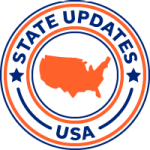
Policy Matters Brief September 21, 2020
New Jersey passes COVID-19 presumption
In a compromise effort to protect front-line workers from COVID-19 exposure, the New Jersey Assembly has passed a COVID-19 presumption bill. Senate Bill 2380 eases the path for essential workers to receive workers’ compensation benefits if they contract COVID-19 related to their work duties.
The legislation covers first responders, healthcare workers and others who have contact with the public. Additionally, the rebuttable presumption retroactively covers COVID-19-related claims from March 9, 2020 and stops when the governor’s declaration of a public health emergency ends.
The legislation bars insurers from counting COVID-19 claims in an employers’ experience modification ratings. And, employees of the state who are offered the option of working from home but refuse will not be eligible for coverage and benefits.
New Jersey’s efforts continue the policy trend of providing workers’ comp coverage for COVID-19- related claims. Optum expects similar efforts in the coming 2021 legislative sessions.
California workers’ comp treatment guidelines updated
The California Division of Workers’ Compensation recently adopted updates to the evidence-based treatment guidelines portion of their Medical Treatment Utilization Schedule (MTUS). This adoption, effective for services rendered on or after September 21, 2020, updates/adds the following referenced American College of Occupational and Environmental Medicine (ACOEM) treatment guidelines:
- Knee Disorders Guideline (ACOEM December 3, 2019) [updated]
- Workplace Mental Health Guideline: Depressive Disorders (ACOEM February 13, 2020) [added]
- Occupational/Work-Related Asthma Guideline (ACOEM June 5, 2020) [updated]
- Occupational Interstitial Lung Disease Guideline (ACOEM November 8, 2019) [updated]
The MTUS is the primary source to determine standards of care in California’s workers’ compensation system. Adopted treatment guidelines are considered to be presumptively correct on the issue of extent and scope of medical treatment. However, this presumption is rebuttable and may be controverted by a preponderance of scientific medical evidence establishing that a variance from the guidelines is reasonably required to cure or relieve the injured worker from the effects of their workplace injury.
Alaska workers’ comp fee schedule changes proposed
The Alaska Workers’ Compensation Board will hold a hearing October 1, 2020 to discuss proposed updates to their medical fee schedules for 2021. Two notable proposed changes address pharmacy and TENS unit reimbursement.
For pharmacy, the proposed changes focus on compounded and “mixed” drugs (currently an undefined term). Utilization of these medications is proposed to be limited to medical necessity, with only FDA-approved combinations and reimbursement set at lowest generic NDC (National Drug Code) for each specific drug.
For TENS units, an annual assessment of the patient is the proposed requirement to renew the TENS unit treatment. Each TENS unit and supply of electrodes would be rented for two months followed by a re-evaluation to validate appropriateness to continue rental or purchase. TENS unit pricing would be at the Medicare rate multiplied by 1.75 with reimbursement of electrodes and supplies at the lower of invoice plus 20% or billed charges.




